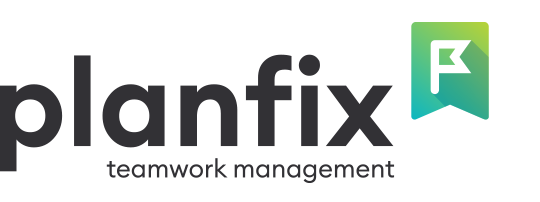
- ▪︎ Why Do You Need a CRM?
- ▪︎ Key Benefits of Customer Relationship Management Systems for Your Business
- 1. Improves Customer Relationships
- 2. Helps Understand Customer Needs
- 3. Increases Customer Retention
- 4. Boosts Your Sales
- 5. Enhances Teamwork and Collaboration
- 6. Increases Efficiency
- 7. Facilitates Business Scalability
- 8. Accelerates Internal Communication
- 9. Assists Strategic Decision-Making
- 10. Ensures Data Privacy and Security
- 11. Improves Reporting
- 12. Illustrates Data with Visualizations
- 13. Centralizes and Organizes Data
- 14. Automates Processes and Tasks
- 15. Improves Customer Service
- 16. Supports CRM Integrations
- 17. Customer Relationship Management Availability
- ▪︎ Which Businesses Benefit from CRM?
- ▪︎ Advantages of Planfix CRM
- ▪︎ FAQ About CRM Benefits
- ▪︎ Final Thoughts
Customer Relationship Management (CRM) has become essential for companies seeking a competitive advantage in an evolving business landscape. Due to its numerous benefits, CRM systems have become a crucial part of modern business strategies. Their features help streamline processes, customize interactions, and secure data, providing a comprehensive toolkit to help companies achieve their goals and stay ahead. In this article, we will explore the many benefits of CRM, highlighting its significant impact on various operations and strategic decisions.
Why Do You Need a CRM?
The benefits of using a CRM system are evident in this age of rapid digital transformation. These systems are no longer a luxury but a necessity for companies of all sizes. By centralizing customer data and interactions, CRMs provide critical insights that help companies better understand customers, anticipate their needs, and create personalized experiences. The benefits of a CRM system include automating routine tasks, giving sales and marketing teams more time to focus on building customer relationships and increasing sales. With features to track and evaluate performance metrics, CRMs enable data-driven decisions, leading to sustainable growth.
Key Benefits of Customer Relationship Management Systems for Your Business
Exploring CRM systems reveals a wealth of benefits. This section examines the key CRM benefits and explains how they improve customer relationships, streamline operations, and drive growth.
Improves Customer Relationships
Customer relationship management system benefits improve customer relations by centralizing data and making it easily accessible. This simplifies communication channels and ensures smoother interaction with customers. For example, sales employees can quickly access the entire customer history and offer individual support.
Helps Understand Customer Needs
Another CRM system advantage is the ability to store and analyze customer data, giving companies insight into customers’ needs and preferences. For example, marketing teams can use historical data to identify trends and adapt campaigns for better targeting and engagement.
Increases Customer Retention
Simplified interactions and access to customer data significantly improve customer loyalty. Personalized follow-ups based on previous contacts can create a sense of value that keeps customers coming back.
Boosts Your Sales
Understanding customer needs and improving customer loyalty leads to higher sales. Armed with detailed profiles and insights, sales teams can better tailor their offers to customer needs, increasing the chances of closing a deal.
Enhances Teamwork and Collaboration
A key CRM system advantage is the simplification of cross-departmental collaboration, which enables a smoother project flow and rapid exchange of information. For example, customer service can share customer insights with product development to make real-time improvements.
Increases Efficiency
CRM benefits for businesses include simplifying interactions and data management while automation tools increase efficiency. Automated workflows can take over repetitive tasks, allowing employees to focus on more strategic work. Reminders and notifications help organize priorities.
Facilitates Business Scalability
Improved relationships, collaboration, and sales all contribute to business growth. A flexible CRM platform can seamlessly handle a growing customer base and changing processes to support long-term success.
Accelerates Internal Communication
CRMs provide comprehensive data access for better decision-making. Centralized interactions and data allow managers to identify trends and make informed decisions quickly.
Assists Strategic Decision-Making

CRM tools automate processes and organize data, helping companies make informed strategic decisions. Reports and visualizations can reveal opportunities for growth and areas for improvement.
Ensures Data Privacy and Security
CRMs prioritize data security through encryption and access controls. Regular audits ensure compliance with data protection regulations and reduce the risk of data breaches. A CRM system can restrict data access based on user roles, ensuring that only authorized personnel can view or edit specific information. This level of security not only helps in complying with regulations like GDPR but also builds customer trust by demonstrating a commitment to protecting their personal information.
Improves Reporting
CRMs offer detailed reporting features to generate comprehensive reports. Software companies, for example, can track project progress, analyze team performance, and monitor feedback. A sales manager can use the CRM to quickly generate a detailed sales performance report that includes data on individual sales rep performance, lead conversion rates, and customer acquisition costs. This automated report provides real-time insights, reduces the time spent on manual data collection, and helps the manager make informed decisions to optimize sales strategies.
Illustrates Data with Visualizations
Charts and diagrams make complex data easier to understand. Visual sales data can highlight trends and patterns and highlight areas for improvement. For instance, a sales dashboard might display a pie chart of sales by region, a bar graph of monthly sales growth, and a line chart of lead conversion rates. This visual approach helps identify patterns, make comparisons, and track progress at a glance, ultimately facilitating more informed decision-making and strategic planning.
Centralizes and Organizes Data
CRM systems centralize customer data in one place, making it easily accessible and manageable. This eliminates the need for manual data entry and reduces errors. For example, a sales team can quickly pull up a customer’s entire interaction history before making a call, allowing for more personalized and effective communication. This organized approach reduces the risk of data duplication, ensures consistency, and enhances the overall efficiency of managing customer relationships.
Automates Processes and Tasks
CRMs automate recurring tasks, save time, and increase efficiency. Automated newsletters can send personalized messages promptly and thus improve customer loyalty. A CRM system can automatically send a thank-you email to a customer after purchase or assign new leads to sales representatives based on predefined criteria. This automation streamlines operations, minimizes human error, and frees up time for employees to focus on more strategic activities.
Improves Customer Service
CRMs enable teams to provide exceptional service by giving them the information they need when they need it. Support agents can access customer history to resolve issues quickly and effectively.
Supports CRM Integrations

Another advantage of CRM in business is its compatibility with other tools. For example, integrating a CRM with email marketing software allows customer data to be synchronized and improves marketing automation.
Customer Relationship Management Availability
CRM benefits for business are found in the many forms of CRM available, cloud-based or hybrid, that cover different business needs. Cloud-based CRMs are flexible and scalable, allowing data access from any location.
Which Businesses Benefit from CRM?
CRM systems offer advantages across a variety of sectors and business sizes. They are especially beneficial for:
Sales Departments
CRM systems provide sales teams with insights into customer preferences and behavior, helping them refine their sales strategies to close deals. By tracking leads, managing pipelines, and automating follow-ups, CRM systems improve sales performance and revenue. For instance, a software company looking to grow can use a CRM system to monitor leads, organize interactions, and prioritize follow-ups based on customer needs, simplifying the sales process and increasing conversion rates.
Marketing Departments
CRM enables marketers to segment their audience, customize campaigns, and accurately measure performance. By analyzing customer data, marketers can refine their strategies for better targeting and higher ROI. A company launching a new product can use CRM to categorize the target audience based on demographics, engagement, and purchase history, resulting in highly targeted marketing initiatives.
Customer Service Departments
CRM systems consolidate customer data, history, and inquiries, enabling employees to provide personalized, efficient support. For example, a telecom company can use CRM to access customer profiles, billing history, and previous interactions, which speeds up problem resolution and increases satisfaction. The system can highlight recurring issues, enabling proactive problem-solving and better service.
Businesses of Any Size
CRM can benefit startups and large enterprises alike. Small businesses can use CRM to build and maintain customer relationships, while large companies can manage complex pipelines and ensure consistency across departments. For example, a boutique store can use CRM to monitor customer preferences and make personalized product suggestions, while a multinational company can synchronize data between different offices to streamline collaboration and decision-making.
Both B2B and B2C Industries
CRMs are suitable for both B2B and B2C companies. In B2B, CRMs help manage customer accounts and contracts, while in B2C, they improve customer experience and loyalty. In B2B, for example, sales representatives can access past conversations to follow up efficiently, improving customer satisfaction and increasing productivity.
Advantages of Planfix CRM
Planfix offers a comprehensive solution that integrates all the advantages of a CRM system with additional features. As a versatile cloud-based CRM platform, Planfix can replace multiple applications and seamlessly adapt to your business. Whether you’re maintaining customer relationships, managing projects, or overseeing tasks, Planfix CRM molds itself to your individual business needs.Regardless of the industry, Planfix simplifies workflows and increases productivity by centralizing data and automating processes.
Retail: Planfix optimizes inventory management, customer loyalty, and sales tracking to provide a better shopping experience.
Healthcare: Planfix supports efficient patient management, appointment scheduling, and medical record-keeping, improving patient care and organizational efficiency.
Finance: Planfix streamlines customer communication, portfolio management, and compliance tracking, enhancing service delivery and regulatory compliance.
Overall, Planfix empowers businesses to improve operational efficiency, increase customer satisfaction, and drive growth across various industries. With its intuitive user interface and customizable features, Planfix is the perfect partner for companies looking to achieve sustainable success in today’s competitive marketplace.
FAQ About CRM Benefits
Why Is it Important to Use a CRM?
A CRM system is crucial because it improves customer satisfaction, streamlines operations, and contributes to better decision-making by organizing customer data and automating tasks.
Implementing a CRM system can streamline your team’s workflow, bring together and automate business processes, and enable centralized collaboration.
What Are the Different Types of CRM?
CRM systems can be operational, analytical, or collaborative. Operational CRM manages customer-facing processes, analytical CRM analyzes data to gain insights, and collaborative CRM improves cross-departmental teamwork.
To determine the right type of CRM system for your business, try out a trial version. Planfix offers a fully functional 14-day trial so you can see how it fits your needs.
Who Uses CRM?
Companies in marketing, retail, healthcare, manufacturing, finance, and other industries use CRM.
From sales and marketing professionals to customer service representatives and executives, CRM simplifies tasks, improves communication, and supports organizational scalability.
Final Thoughts
Customer Relationship Management (CRM) systems are essential for modern businesses. They improve customer relationships, increase efficiency, and promote growth. For those looking for a versatile, cross-industry CRM, Planfix CRM is the ultimate solution, offering a range of CRM software benefits. Its flexible features and customizable capabilities enable companies of all sizes and industries to streamline operations, maximize productivity, and achieve strategic goals.
Planfix’s business process management system offers a free version — sign up now and discover the benefits of the platform.

